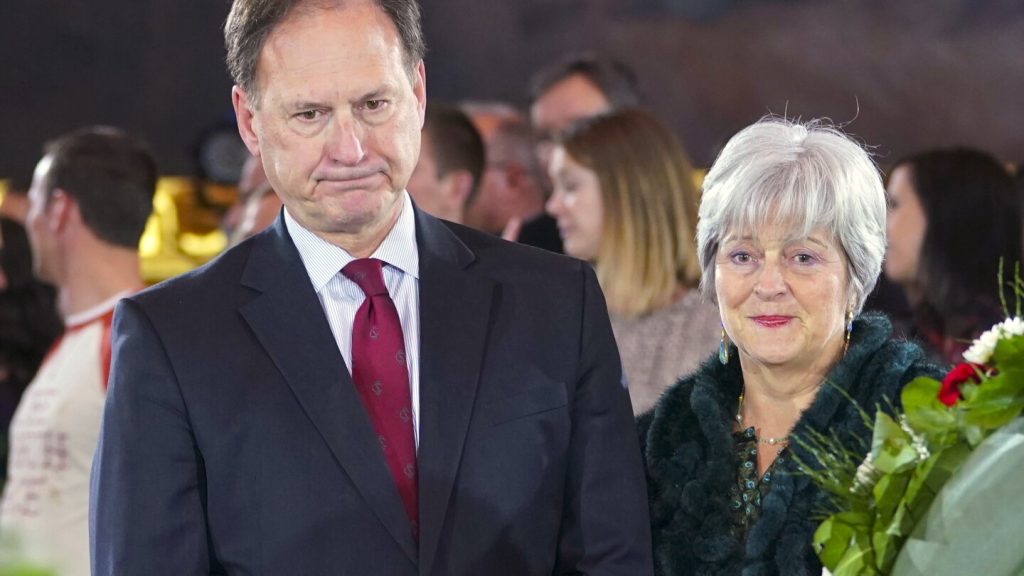Justice Samuel Alito recently faced calls from Democrats to recuse himself from two high-profile Supreme Court cases involving former President Donald Trump and Jan. 6 defendants due to flags that flew over his homes. The flags were similar to those carried by rioters who stormed the Capitol in January 2021 while echoing Trump’s false claims of election fraud. Alito explained in letters to members of Congress that his wife was responsible for the flags and that his impartiality could not reasonably be questioned. Despite this explanation, Democratic critics remain unsatisfied, but they have limited options to challenge the decision.
The Supreme Court has a process for recusal that involves federal laws and an ethics code for guidance, but there are no means of enforcing these rules. The federal law states that a justice should disqualify themselves from a proceeding if their impartiality might reasonably be questioned. The Court’s code of conduct outlines the duty of justices to participate in cases, but also acknowledges the importance of having an impartial party decide on recusal. Ultimately, only an impartial and reasonable person who is aware of all relevant circumstances can validly call for recusal.
Supreme Court justices have the authority to decide for themselves whether or not to recuse from a case, and it is a rare occurrence for a party in a case to request recusal. Justices have previously faced calls for recusal in cases where there may be perceived conflicts of interest, such as Justice Antonin Scalia being asked to recuse from a case involving then-Vice President Dick Cheney. Scalia defended his decision not to recuse by stating that his impartiality could not reasonably be questioned, highlighting the autonomy that justices have in making such decisions.
There is little consequence for a justice’s refusal to recuse from a case, with impeachment by the House of Representatives and removal from office by the Senate being the only possible outcome, though this has never happened. Justice Alito explained his decision not to recuse by pointing to the Court’s ethics code and emphasizing that his wife’s actions in flying the flags did not align with the intentions of Capitol rioters. He defended her right to express herself and detailed the sacrifices she has made due to his Supreme Court service, including enduring protests outside their home.
Recusals by Supreme Court justices are common occurrences, with reasons ranging from potential conflicts of interest to investments in companies involved in cases. Justice Brett Kavanaugh recently recused himself from a case involving lawyer Michael Avenatti, likely due to Avenatti’s representation of an accuser during Kavanaugh’s confirmation hearings. Other common reasons for recusal include justices’ previous involvement in cases or investments in companies with pending cases before the court. Despite criticisms and calls for recusal, justices have the authority to make their own decisions on whether to step aside from a case.


